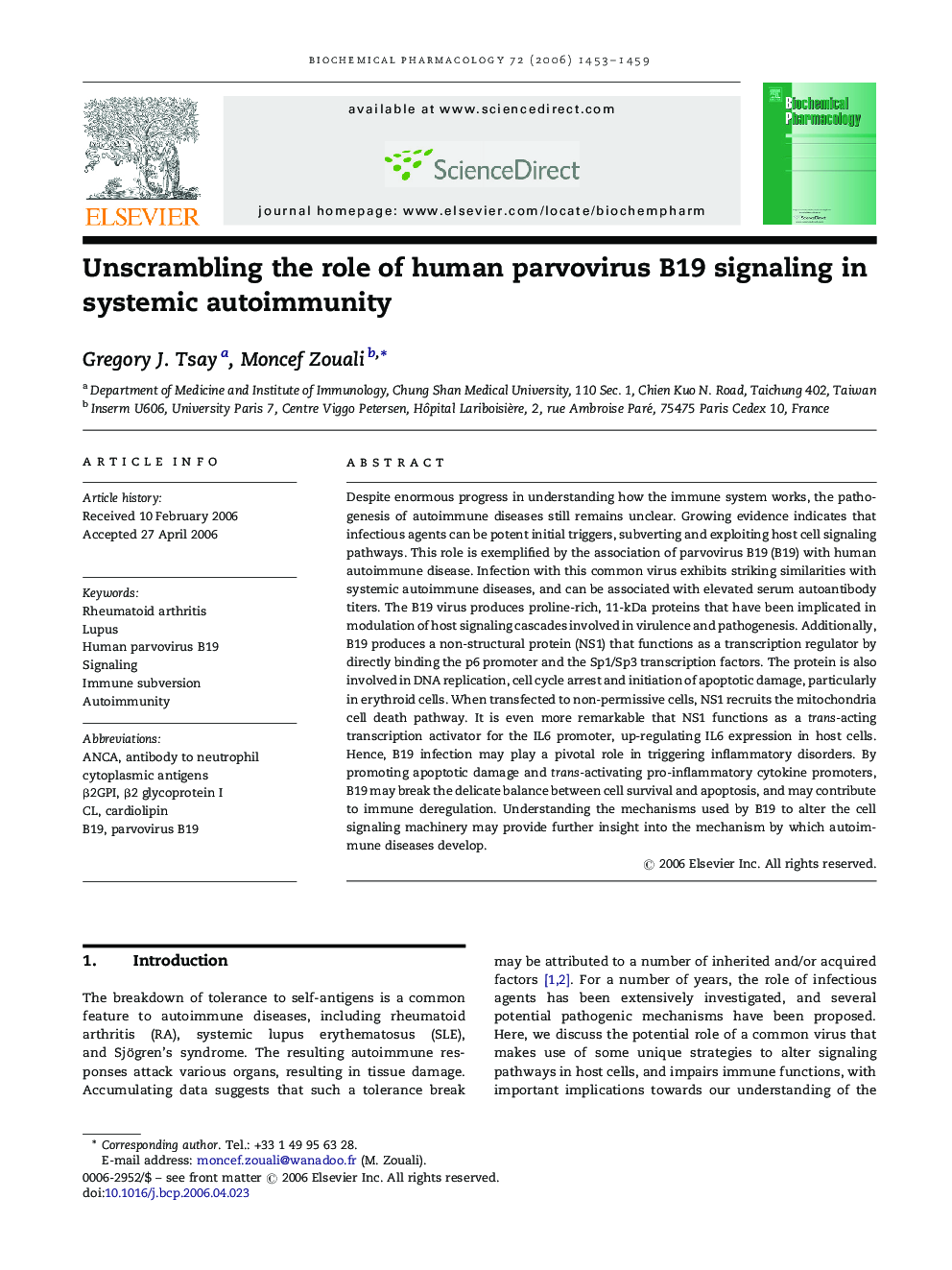| Article ID | Journal | Published Year | Pages | File Type |
|---|---|---|---|---|
| 2515084 | Biochemical Pharmacology | 2006 | 7 Pages |
Despite enormous progress in understanding how the immune system works, the pathogenesis of autoimmune diseases still remains unclear. Growing evidence indicates that infectious agents can be potent initial triggers, subverting and exploiting host cell signaling pathways. This role is exemplified by the association of parvovirus B19 (B19) with human autoimmune disease. Infection with this common virus exhibits striking similarities with systemic autoimmune diseases, and can be associated with elevated serum autoantibody titers. The B19 virus produces proline-rich, 11-kDa proteins that have been implicated in modulation of host signaling cascades involved in virulence and pathogenesis. Additionally, B19 produces a non-structural protein (NS1) that functions as a transcription regulator by directly binding the p6 promoter and the Sp1/Sp3 transcription factors. The protein is also involved in DNA replication, cell cycle arrest and initiation of apoptotic damage, particularly in erythroid cells. When transfected to non-permissive cells, NS1 recruits the mitochondria cell death pathway. It is even more remarkable that NS1 functions as a trans-acting transcription activator for the IL6 promoter, up-regulating IL6 expression in host cells. Hence, B19 infection may play a pivotal role in triggering inflammatory disorders. By promoting apoptotic damage and trans-activating pro-inflammatory cytokine promoters, B19 may break the delicate balance between cell survival and apoptosis, and may contribute to immune deregulation. Understanding the mechanisms used by B19 to alter the cell signaling machinery may provide further insight into the mechanism by which autoimmune diseases develop.
